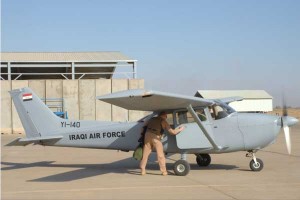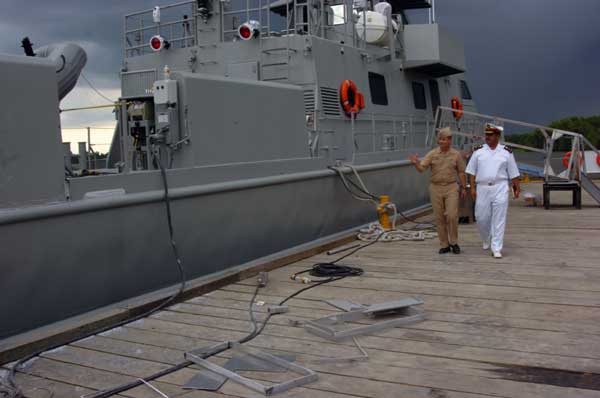By Dr. Robbin Laird
Much of the Iraq withdrawal conversation has revolved around either the date of U.S. departure or protecting Americans left behind. Missing from the debate is arguably the most important strategic questions:
- How will Iraqi security be guaranteed during Iraq’s continuing transition?
- What U.S. security policy is necessary to help shape that guarantee?
- And how will the re-entrance of Iraq into the global community affect stability in the region, notably the Iranian dynamic?
- And how will security in a difficult neighborhood of Israel, Saudi Arabia, Syria and Iran be affected by developments in Iraq?
The U.S. can use this next phase to help shape positive responses to this questions seen from the U.S. or Western point of view. Indeed, it is difficult to understand how withdrawal unconnected to such questions is in the U.S. or regional strategic interest. I entered my time in the Washington bureaucracy dealing with the Iran-Iraq war in the early 1980s and no one at that time would have considered the one country without the other. Yet much of the current Iraq conversation seems to ignore such fundamental strategic context.
What are some of the key tools, which the U.S. could shape, in the next few years to work with the Iraqis and to contribute positively to regional security?

First, as the transition accelerates the most significant U.S. forces are air and naval forces. These forces are crucial in training Iraqis but also working with nascent Iraqi forces to ensure their territorial integrity as well as to build upon US working relationships in the region. The war in Kuwait was about territorial integrity, which remains a fundamental issue in the region. With all the emphasis on MRAPing operations, it is now time to step back and to re-invigorate air and naval forces in the region able to re-assure Iraq and deter Iran.
Second, the U.S. should provide or sell to the Iraqis American kit, which is useful to serving the first purpose.
The U.S. provided Cessna’s for ISR roles and these aircraft and systems are perfect for security missions and complete fast jets used for border patrols.
Project Liberty provided an over ally sophisticated system with sensors which are not exportable and not useful to the transition.
The USCG ships rejected in Deepwater and tied up in Baltimore should be provided to the Iraqis.
Indeed, the entire US effort to work with coastal navies and riverine forces can be augmented by practical experience with the Iraqis. Protecting oil rigs and infrastructure requires not only training but also the proper equipment.
Rather than buying Russian helos, it is a good tie to provide basic U.S. kit as basis of fostering a continuing relationship.
Iraqi Swift Boat Training, June 29th, 2010 (Credit Photo: USN Visual Services)
Third, Iraqi-American cooperation is a solid foundation for Western-Iraqi cooperation. Such cooperation is a crucial anchor to the deterrence of Iran and threats to Arab and Israeli interests. By shaping tools and capabilities to provide for Iraqi security beyond the tasks of internal security narrowly constructed, the US would provide an approach to how to endgame engagements. Although there is much military theory about intervention and war fighting, as well as growing literature on peacekeeping and counter-insurgency operations, the question of how one leverages a transition to achieve enhanced regional security is a missing subject. We need now to write this history and to shape a more effective understanding that are better choices than simply to be there or to leave. In the Middle East, the U.S. and the West will always be present. The question is how and to seek ways to be more effective. With the end of the massive engagement effort winding down, how can we shape an effective strategic engagement with Iraq to shape a more secure Middle East in the years ahead?
For other contributions to the Iraq 2012 discussion see our other publications:
https://www.sldinfo.com/?p=10054
https://www.sldinfo.com/?p=10303
https://www.sldinfo.com/?p=10824
———-
***Posted on August 24th, 2010


